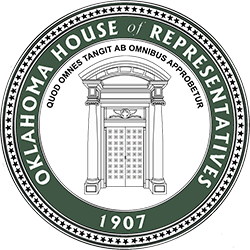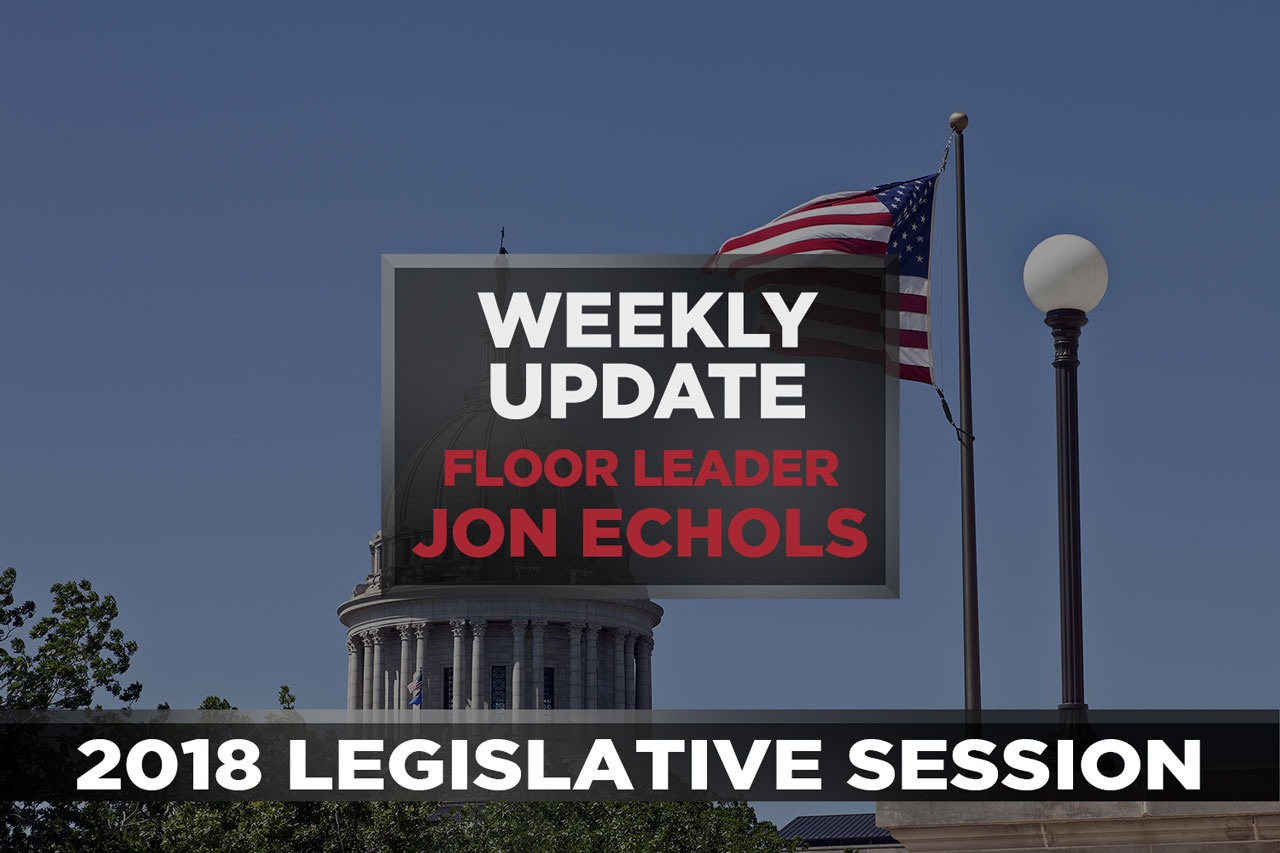 The following actions took place from May 18-21:
The following actions took place from May 18-21:
House Approves Budget Legislation
On Wednesday, May 20, the Oklahoma House of Representatives voted in favor of the Fiscal Year 2016 budget. As approved, the $7.1 billion budget will cut 49 state agencies while preserving existing funding for common education and providing small increases to health care, public safety and the child welfare system.
A $611 million shortfall in money available for the 2016 fiscal year budget compared with the 2015 budget was resolved by taking $150 million from the state’s Rainy Day Fund, $50 million from the Unclaimed Property Fund, $121 million from state agency cash flow reserves and $125 million from state revolving funds, or accounts held by state agencies.
Under the plan, the state child welfare system will get an increase to fund an improvement plan for children in state care. The state corrections department will get a $14 million increase in order to address overcrowded prisons and a shortage of correctional officers.
Under the plan, the Oklahoma Health Care Authority will get an $18 million increase and the state mental health department will get a $2 million. Funding for the state health department remained flat.
Higher education and Career Tech will take small cuts, but the state will pick up a higher education bond issue payment.
The agreement also leaves in place an eight-year plan for improving state roads and bridges and a five-year plan for county roads and bridges.
Senate Committee Votes to Change Third Grade Reading Law
On Wednesday, May 20, a Senate committee advanced a bill to modify a law on the retention of third-graders based on reading scores.
Senate Bill 630 will make changes to the third grade reading law. The bill would require local teams assigned to students to meet for three years instead of two, remove the student’s principal from the panel and soften the reading mandate’s impact based on needs of individual children.
The measure also would require students in kindergarten through third grade to be tested at the beginning and end of each year.
The measure now moves to a House committee before being heard by both the full House and full Senate.
Governor Signs Bill to End Wind Tax Exemption
On Wednesday, May 20, Gov. Mary Fallin signed a bill into law that will end a major property tax exemption for new wind developers on Jan. 1, 2017.
The five-year exemption allows wind developers to avoid paying property taxes. Senate Bill 498 is projected to save the state $500 million over the next 10 years.
Exemptions by wind developers made up half of the $64 million in claims in 2013, according to the Oklahoma Tax Commission. Commission projects estimate $28.8 million in claims for 2014, $38.2 million for 2015 and $44.9 million for 2016.
House Approves American Indian Cultural Center Bill
On Monday, May 18, the Oklahoma House of Representatives approved a proposal to complete the American Indian Cultural Center and Museum and eventually turn it over to Oklahoma City.
House Bill 2237 provides an additional $25 million in funding to complete the museum. The state is currently making debt payments of $5 million a year for past bonds used to fund the museum. The new funding would be financed through lease-revenue bonds that would require $2 million a year from the state. The legislation requires that the money be paid back to the state by the museum.
Under the legislation, Oklahoma City can take over the 143 acres that surround the museum and use it for commercial development with the proceeds put toward the completion of the project. After the state finishes paying off the bonds in 2027, the city could take over the museum.
The museum was authorized in 1994 and received its first state appropriation in 1996. Construction began in 2006 but ended in 2012.

